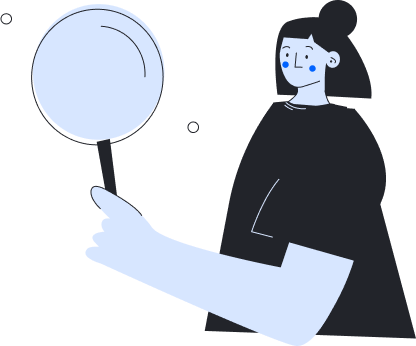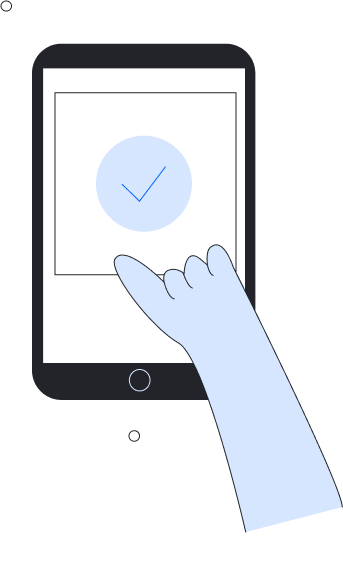Dungeons and Dragons (D&D) Name Generator
Most people have already burned through the ten good fantasy names they had stored away. BrandSnag fixes that. And it doesn't try to impress you with fake medieval gibberish, either.
You put in the ideas. BrandSnag's Dungeons and Dragons name generator gives you something that works for your setting—without wasting your time. So stop googling "orc names that don't suck." Use BrandSnag.
What is Dungeons & Dragons

Dungeons & Dragons is a tabletop game created in 1974. Gary Gygax and Dave Arneson are the two minds behind it. The game throws you into a made-up world where you take on the role of a character. You roll dice to decide what happens. Sometimes, you swing a sword. Sometimes, you talk your way out of a trap. Either way, you're at the table with two or more players. It usually runs for hours, though technically, a game can be over in 60 minutes.
Dungeons & Dragons is currently in its fifth edition. The books are put out by Wizards of the Coast. More than a game, it's grown into a publishing machine. In 2025, they're dropping new rulebooks, campaign settings, and guides in multiple languages. That means more ways to get lost in its made-up worlds and pretend to be a wizard or an elf for a while.
At the center of all this fantasy role-playing are characters. Lots of them. Each one needs a name that fits their traits, history, class, and race. That can either take hours or ten seconds, depending on how serious you are or how bad your naming ideas are. And that's where BrandSnag comes in.

Why Character Names Matter in D&D

Names in Dungeons & Dragons aren't there for decoration. They tell people who your character is without needing a big backstory. A name can suggest class, origin, intent, or race. It's harder to take a sorcerer named "Greg" seriously unless Greg grew up in a volcano and eats fire.
Whether you're a dungeon master or a player, you run into this same issue: you need a good name, and you need it fast. Most people default to bad fantasy name generators, which churn out nonsense like "Zorthak Ironbeard" five hundred times. That's not helpful when your campaign already has three Zorthaks and two Ironbeards. BrandSnag fixes that problem.
Using simple keywords, BrandSnag creates names that actually make sense in a D&D setting. Want something elvish? Rogue-ish? Barbarian-sounding? You type a few ideas, and it gives you options that aren't pulled out of a random name bucket.

Fast, Thematic Names with BrandSnag

Instant Results, Linked to Lore
Type a theme—like "arcane scholar" or "dragon slayer"—and the tool returns names that actually make sense. No need to backsolve why your wizard is named "Chad." Behind the scenes, there's an advanced AI system trained on D&D lore, fantasy naming conventions, and genre-specific phonetics. You get a stream of results within seconds. You won't need to cycle through three websites to find a name that fits your half-orc monk who sings opera and punches using ki energy.
Custom Inputs That Matter
Want a name for a tiefling rogue with a tragic backstory involving cursed daggers and absentee infernal parents? There's a field for that. The tool lets you fine-tune gender, race, class, backstory keywords, and traits. You can even try to match the linguistic style to specific languages, like Elvish or Latin-inspired naming. The tool adjusts word structure and cadence to hit those notes properly—so you don't end up with a dwarven name that somehow sounds Hawaiian.
Names by Theme, Not Coincidence
Nothing breaks immersion faster than a Gnome ranger named "Steve." The generator sorts names by actual in-game roles. This means a cleric sounds like a cleric, and a barbarian doesn't sound like he runs an Etsy candle shop. Because the tool understands how fantasy names work by class and race, you're not sifting through unusable results.
Quick and Intuitive
The interface doesn't bury you in dropdowns or endless tooltips. Even new players can get usable names fast. For busy dungeon masters prepping five NPCs before game night or first-timers trying to sound like they belong at the table, it's all plug-and-play.

How to Come Up With a Good DnD Character Name

Picking a name in Dungeons & Dragons is not hard, but it does take some thought. If your wizard's name sounds like a toddler sneezed into soup, you'll hear snickers around the table. If it sounds like a generic generator spit it out after three random vowels and a Z, nobody will remember it. A good name helps everyone take your character seriously—or at least know what tone you're going for.
Start With the Setting
Your name has to fit the world. That's the first rule. If your dungeon master built a campaign full of Saxon-inspired humans and Celtic elves, a character named "Blorpaxe 3000" won't land. Even absurd characters need to commit to the setting to make the joke work.
Dwarves often use blunt, Germanic elements. Think “Thrain” or “Gundrik.” Lots of consonants jammed into two syllables—sounds like something you could forge iron with. Elves trend toward light vowels and lots of soft consonants. Names like "Aelrion" or "Lirael" feel like they could whisper secrets into the wind, if that wind went to Oberlin.
Each campaign setting has naming patterns, whether it's published or homebrew. Eberron uses house names like "d'Cannith." Greyhawk borrows heavily from Old Norse and medieval Europe. Read the rulebooks or setting guide entries. Better yet, mimic the NPCs. They're baked into the lore.
Use Language on Purpose
Once you get the setting down, work with the sounds. Good names tend to have patterns. You can invent your own names by playing games with language.
Try this: take a normal name and swap the vowels. "Jonathan" becomes "Junothen." That's not brilliant, but it's something. Or slice syllables off real names and remix them. "Harold" and "Edith" become "Harith" or "Edrald."
Use real-world languages as your base. Tiefling names often borrow from Latin or pseudo-Latin: "Valerius Darkbane" sounds like prom got canceled at Hell High. Monks might use names with Japanese or Chinese roots. Druids work well with Irish or Welsh syllables. But don't mash cultures randomly. Combine borrowed elements with care. Tariq Llywelyn? Works, if your setting allows blended cultures. Olaf Xiang? Maybe not.
You can also use anagrams, but refine them. Don't stop at "Adnil" from "Linda." Rearrange until it sounds like a character. "Naldira" has more of a ring. Starting with class-based words also helps: "blade"—scramble it into "Delab" and build from there. "Delaborin"? Probably a gnome illusionist who lies for fun.
Match Tone and Class
The best names echo the role. Bards should sound musical or dramatic. "Fiora Lyristrider" is readable and elegant. It works. Rogues benefit from short, snappy names. "Kael" does more work than "Zydoniseth." Wizards with long, scholar-sounding names often sound more learned. If your abjurer is named "Darnxok," try again.
Same with race. Dragonborn names groan with consonants and sound a bit heavy in the mouth—"Krivax," "Rhazgar," "Thavaar." Halflings can afford cheerful or pastoral names. Take "Pip," add a plant word, then you've got "Pippin Greenhill" or something equally proper for second breakfast.
Some players write a backstory and pick a name that fits the origin. Others pick the name first and write the story around it. Both work. But inconsistency stands out. If your lizardfolk barbarian is named "Carl," you're either doing a comedy bit or you forgot to finish character creation.
Be Careful With the Joke
Some names are meant to be funny. "Sir Bearington" is a well-known joke. So are names like "Spankus the Flatulent" or "Blarp the Bloodthirsty." These are great if the campaign is short, shallow, or intentionally silly.
But that joke wears thin fast in a serious campaign. If your dungeon master just spent three paragraphs describing the geopolitical tension between rival dwarven houses, and your character's name is "Wheeto Cruncharms," everyone suffers.
Campaign tone matters. Make the name match it.
Final Notes
Names are the first signal to the table about what your character is and how they should be interpreted. Act like it matters. It doesn't need to be deep or poetic—just consistent, readable, and suited to the world.
Most players, 67%, according to data pulled from a DnD Beyond user survey in 2024, say they prefer names that tie into backstories instead of random ones. And while 42% of dungeon masters use generators for non-player characters, far fewer rely on them for their own main characters.
Practice a few methods. Try vowel swaps, mash syllables, borrow from mythology, and check real-world names. A little effort gets you something better than "Xanxan the Edge."
And if all else fails, write a backstory first. The name usually finds you after that.
300 DnD Character Name Ideas by Race
30 Human DnD Name Ideas
- Miraorley
- Vaelorford
- Loranford
- Vaelraley
- Torander
- Bryelridge
- Brylocrest
- Rianishart
- Jasanman
- Miraorford
- Riandanridge
- Selenman
- Eranisridge
- Eranilhart
- Bryilley
- Jasorford
- Torraman
- Miraorhart
- Rianelder
- Jasancrest
- Torelton
- Bryanman
- Vaelissen
- Torisridge
- Miraisder
- Eranorton
- Jasiscrest
- Rianilridge
- Eranilwick
- Selenwick
30 Elf DnD Name Ideas
- Thalaelthas
- Syluarmir
- Sylarisira
- Liaiondorei
- Galwynmir
- Sylaridorei
- Myiendorei
- Sylarithir
- Thalarilara
- Sylariveth
- Eliienrael
- Myithmir
- Feyithveth
- Aluolaveth
- Galiththir
- Myeonsira
- Aluolalara
- Rilienmir
- Feyeondorei
- Myuarthas
- Syluarveth
- Aeuarveth
- Eliionsira
- Eliiththir
- Aluolathas
- Rilionlara
- Eliuardorei
- Liauarveth
- Liaolathir
- Myolathas
30 Dwarf DnD Name Ideas
- Durdokforge
- Brundokstone
- Brundanhammer
- Gimthunhammer
- Thramarnanvil
- Durburbeard
- Durdokgrip
- Kraggarnhammer
- Daintoranvil
- Brunthunshield
- Fundgromanvil
- Baldburbrew
- Baldgrimforge
- Gimburbrow
- Bruntorbrew
- Funddananvil
- Kragthunbeard
- Kragdanbrow
- Thradananvil
- Daindangrip
- Thradanstone
- Durmarngrip
- Daintorgrip
- Brunmarnhelm
- Baldrakhammer
- Fundgrimgrip
- Thrathunhelm
- Daingromanvil
- Brunthungrip
- Bortorbrow
30 Halfling DnD Name Ideas
- Lobmobrush
- Nobmobrush
- Miloselbrook
- Bilwickbarrel
- Roslenfellow
- Rosperbrook
- Loblowbrush
- Nobperbarrel
- Willowburrow
- Rosverhopper
- Bildutberry
- Cottberfellow
- Noblenfoot
- Nobselhill
- Rosverbarrel
- Wilberburrow
- Crisverburrow
- Bilbanbarrel
- Wilberhopper
- Milolenfoot
- Lobverbarrel
- Nobwickhill
- Crisduthill
- Nobselhopper
- Cottselfoot
- Milobanfoot
- Noblenbrush
- Crisselberry
- Bilbanhill
- Rosselburrow
30 Gnome DnD Name Ideas
- Zansnargear
- Wizglimwhirl
- Wizquepgear
- Zansnarwhirl
- Tinkvixsnap
- Tinkwopblast
- Gimcrakblast
- Bopvixblast
- Tinkzleglint
- Bopcrakbop
- Jipblinwhirl
- Bopvixsnap
- Wizwopgear
- Bopquepsnap
- Pipquepwhistle
- Bopvixgear
- Pipsnargear
- Bopblinglint
- Pipwopwhirl
- Fizzcrakwhistle
- Fizzcrakglint
- Tinkcrakbop
- Dapzlebop
- Bopblinwhirl
- Tinksnarwhirl
- Jiptwibbop
- Zanblinwhirl
- Dapzleglint
- Piptwibwhistle
- Fizzblingear
30 Half-Orc DnD Name Ideas
- Gortagzug
- Gorzogbag
- Brugbrakduk
- Zogzogbag
- Zogbrakduk
- Thoknokzug
- Vargzugzug
- Thokzogrash
- Mugtagrash
- Bruggromduk
- Gorzogduk
- Lugnokzug
- Vargnoktrak
- Mugtagnak
- Lugdurduk
- Lugzoggor
- Zogdrukzug
- Drogdurduk
- Drogzugduk
- Mugzugzug
- Brugzognash
- Thokzognak
- Mugdrukmok
- Drogtagzug
- Zogbrakgor
- Droggromnash
- Brugnoktrak
- Urkdurduk
- Lugzugmur
- Vargbraknak
30 Half-Elf DnD Name Ideas
- Liramarmir
- Kormirmar
- Selmarmir
- Fenmarmir
- Valmirmir
- Feniandil
- Caeliellor
- Kororthas
- Rynieldil
- Selianwyn
- Caelmarwyn
- Thamorthas
- Arinriaswyn
- Kordilnor
- Arinlorsyl
- Thamwynmir
- Valriasmir
- Arinielwyn
- Selriasnor
- Selvenmar
- Liravensyl
- Korriasthas
- Caelorthas
- Korielwyn
- Arinwynwyn
- Fenventhas
- Fenmarthas
- Rynianmir
- Fendilven
- Caelriasrias
30 Dragonborn DnD Name Ideas
- Balsraalmiir
- Arjvyrdrak
- Arjraalroth
- Balskaarkaar
- Nadnashdaar
- Krivdrodrak
- Balsraalsaar
- Rhogzurgast
- Jhardrokaar
- Rhogdrosharx
- Jhargarkaar
- Balsvyrkaar
- Zarraalsaar
- Rhogkaarsaar
- Nadmirthorn
- Krivthokdaar
- Zarraalroth
- Balsgargast
- Rhogmirvyr
- Jharthokvyr
- Jharthoksharx
- Yarzurvyr
- Arjvyrdaar
- Zarraalthorn
- Arjraalvyr
- Nadnashsharx
- Arjgarroth
- Rhogzursharx
- Yarzanmiir
- Jharkaardrak
30 Tiefling DnD Name Ideas
- Morxilmeth
- Belzenzeb
- Azvexriel
- Khaxilmeth
- Belvexzaar
- Nyxdroszeb
- Xartharzeb
- Nyxdriszeb
- Lilvexriel
- Azdristhos
- Vexxilmox
- Khatharmox
- Xarvexthos
- Morzenmeth
- Belkhalmeth
- Nyxdrosmeth
- Xartharlith
- Lilxilmeth
- Ravxilmox
- Azzenlith
- Khamoxthos
- Belthoszaar
- Azdrismox
- Morvexzaar
- Xartharmox
- Khadristhos
- Vexzenmox
- Nyxkhalmeth
- Lilthosmeth
- Ravxilthos
30 Aasimar DnD Name Ideas
- Zoruraiel
- Elyilal
- Caloror
- Soloran
- Zorionthas
- Thelorion
- Iraorthas
- Lumilor
- Lumariel
- Solarel
- Elyielor
- Zororion
- Theliusor
- Thelional
- Calethor
- Araionor
- Iraoriel
- Valiusan
- Lumionel
- Seralaion
- Calielmir
- Seroris
- Valionis
- Iraethion
- Irauraion
- Solilmir
- Solorion
- Sereththas
- Zoralais
- Araariel
